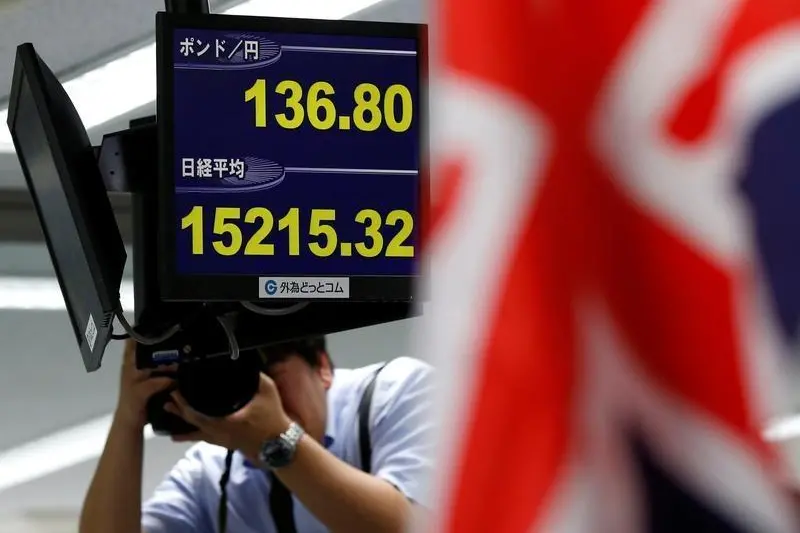PHOTO
Sterling was on track to snap a three-day losing streak on Monday, as the dollar's slide after the selection of fund manager Scott Bessent as U.S. Treasury Secretary lent support to most major currency pairs.
The pound firmed 0.4% to $1.2579 after slumping to a six-month low of $1.2475 on Friday after disappointing British business output and retail sales data raised the prospect of more aggressive interest rate cuts by the Bank of England.
BoE Deputy Governor Clare Lombardelli said on Monday she was more worried about the risk that inflation comes in higher - not lower - than the central bank has forecast as she made the case for only gradual reductions in interest rates.
The BoE is expected to be less dovish than the European Central Bank or the Federal Reserve in the face of stubborn inflation.
The BoE has lowered rates twice since August to 4.75%, less than that ECB and the Fed. Money markets have priced in nearly 70 basis points of more BoE interest rate reductions by the end of 2025, compared with around 150 bps for the ECB and 70 bps for the Fed.
The dollar index retreated from its two-year peak to 106.94 on Monday, consolidating after a strong run on Bessent's nomination for the highest-ranking U.S. economic position.
The news spurred bets his appointment would reduce the chance of severe tariffs and keep a lid on deficits, pressuring yields which slightly diminished the dollar's rate appeal.
The pound had slipped to 83.37 pence per euro from a two-week high of 82.70 on Friday, after outperforming the euro zone's common currency this month.
The fall in sterling has been correlated to the euro since U.S. election, broadly due to dollar strength taking precedence over the data and policy divergence that was more of a theme before the election, Goldman Sachs strategists said in a note.
"We still see upside in long sterling expressions versus EUR and Euro-sensitive currencies like SEK (Swedish Krona), where the pound should differentiate itself a bit more on a divergence in domestic prospects including our expectation for growth outperformance and an asymmetric impact from U.S. tariffs."
With no major British data scheduled for release this week, focus will be on inflation data out of the U.S. and the euro zone, remarks from BoE speakers.
(Reporting by Medha Singh; Editing by Andrew Heavens)





















